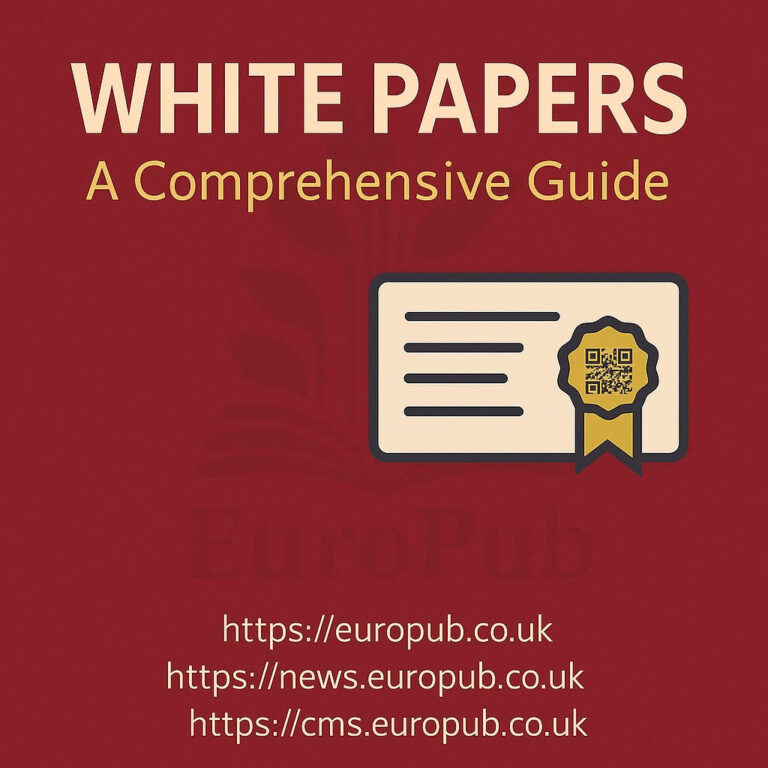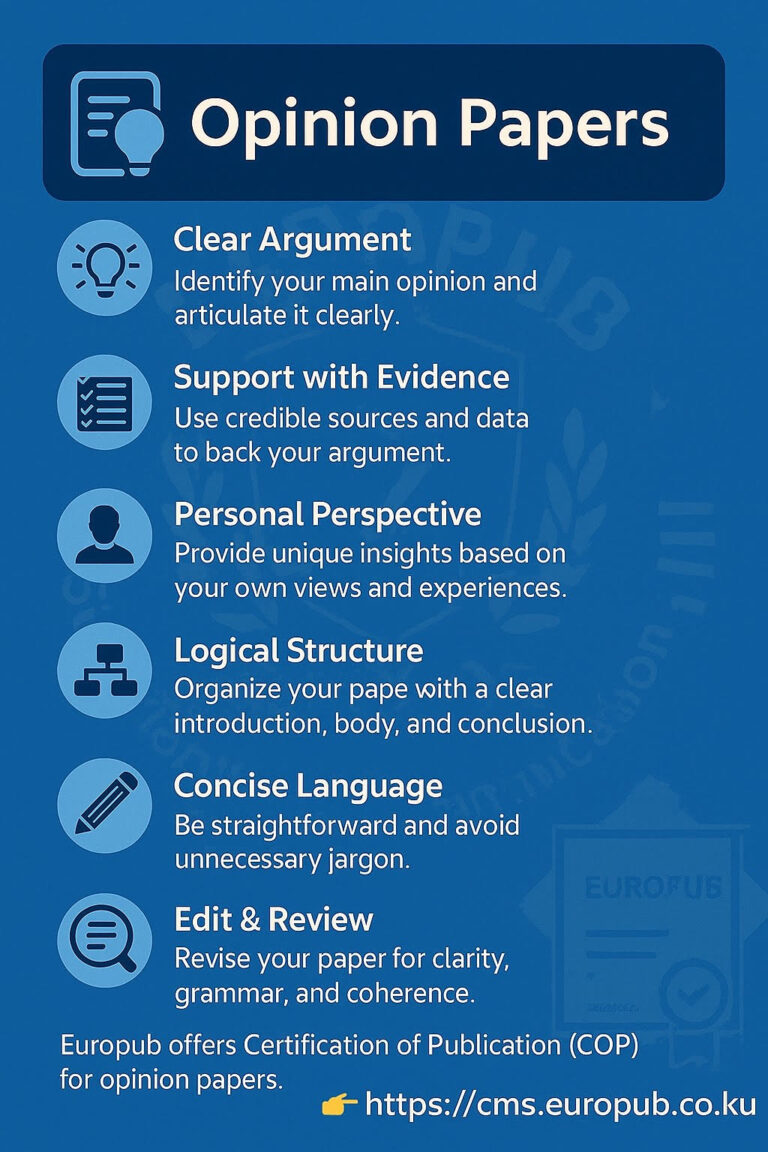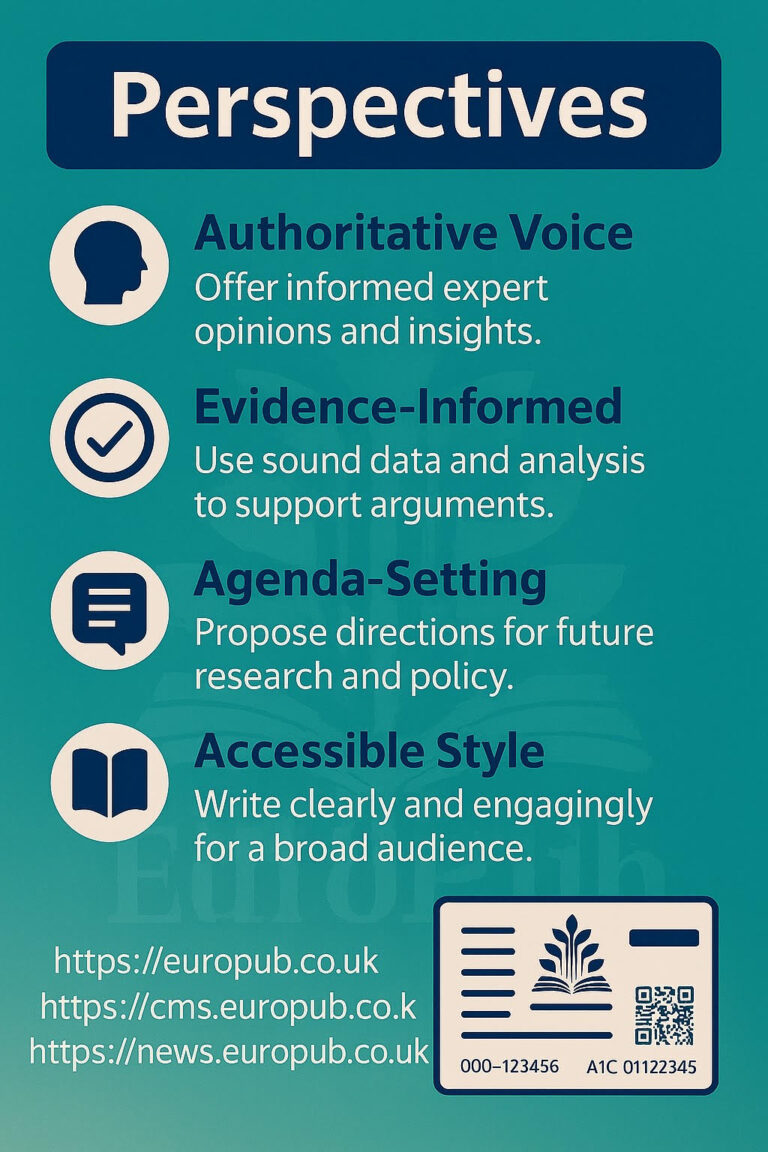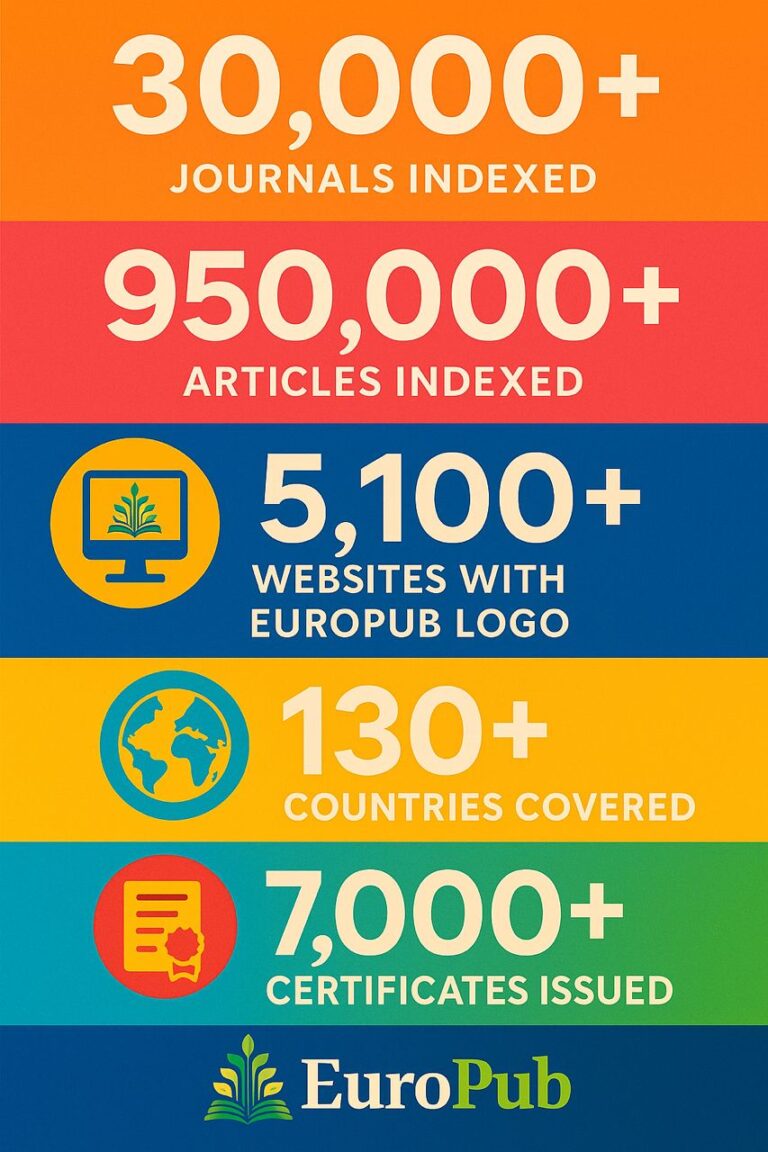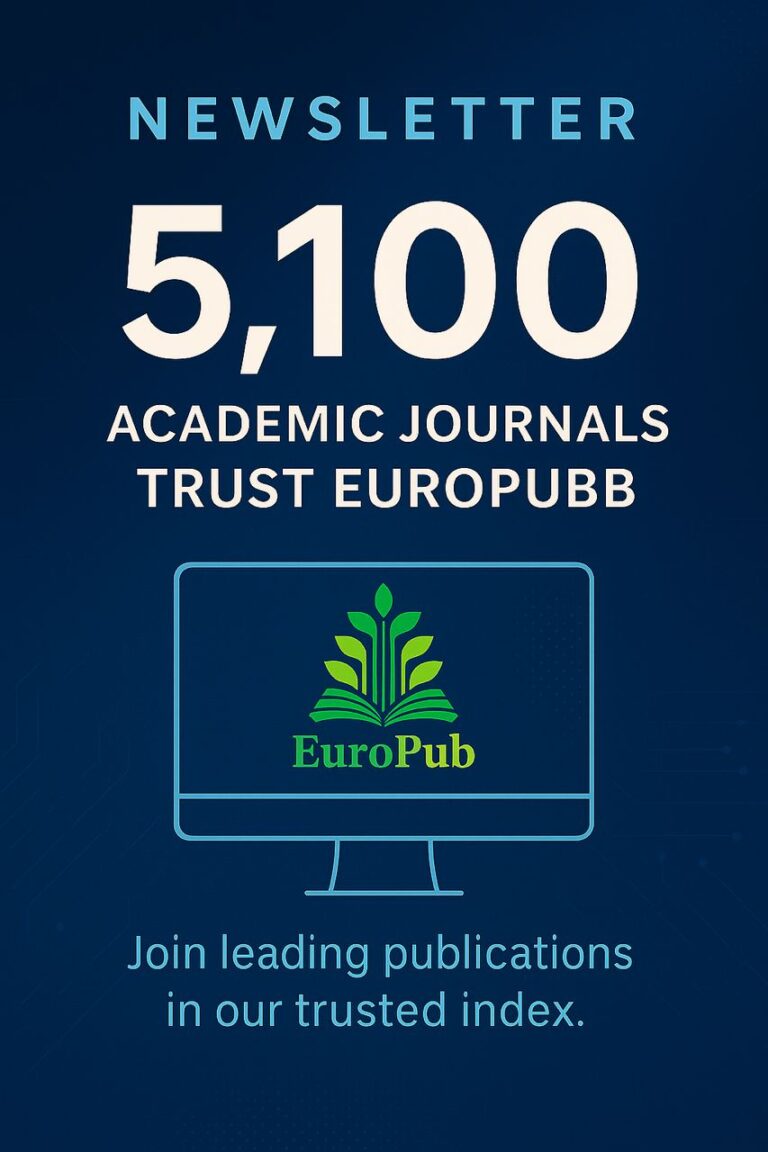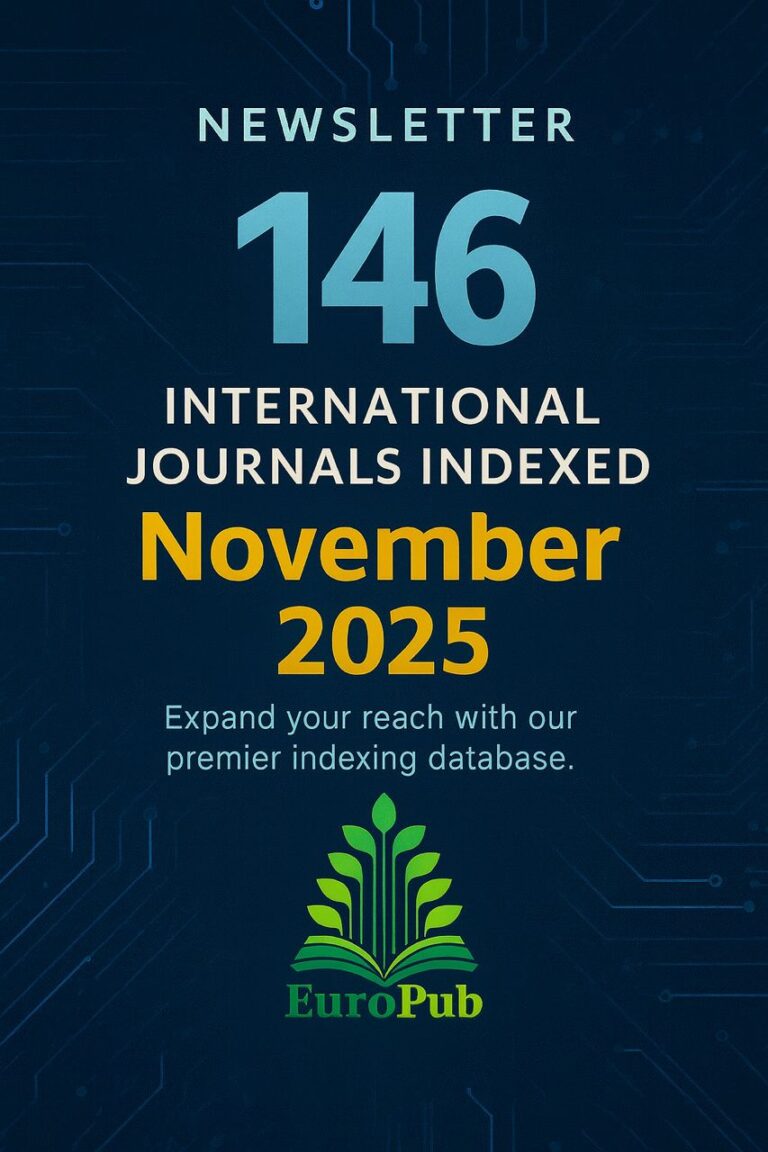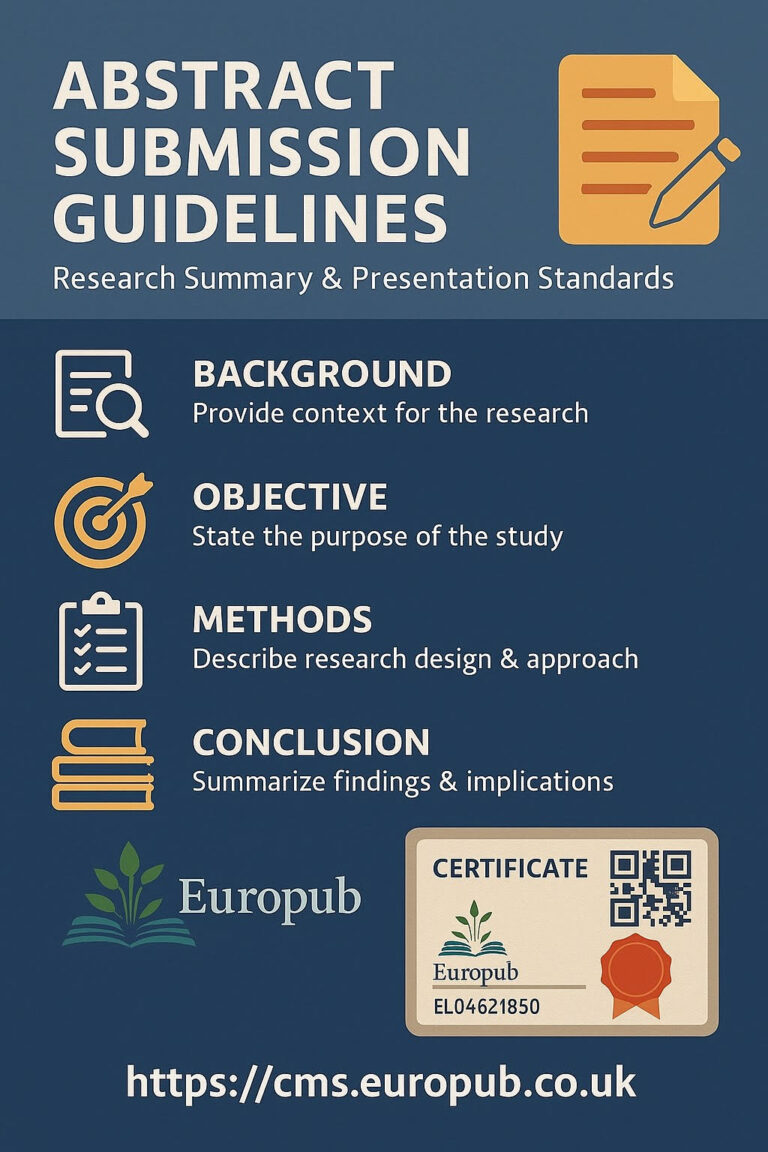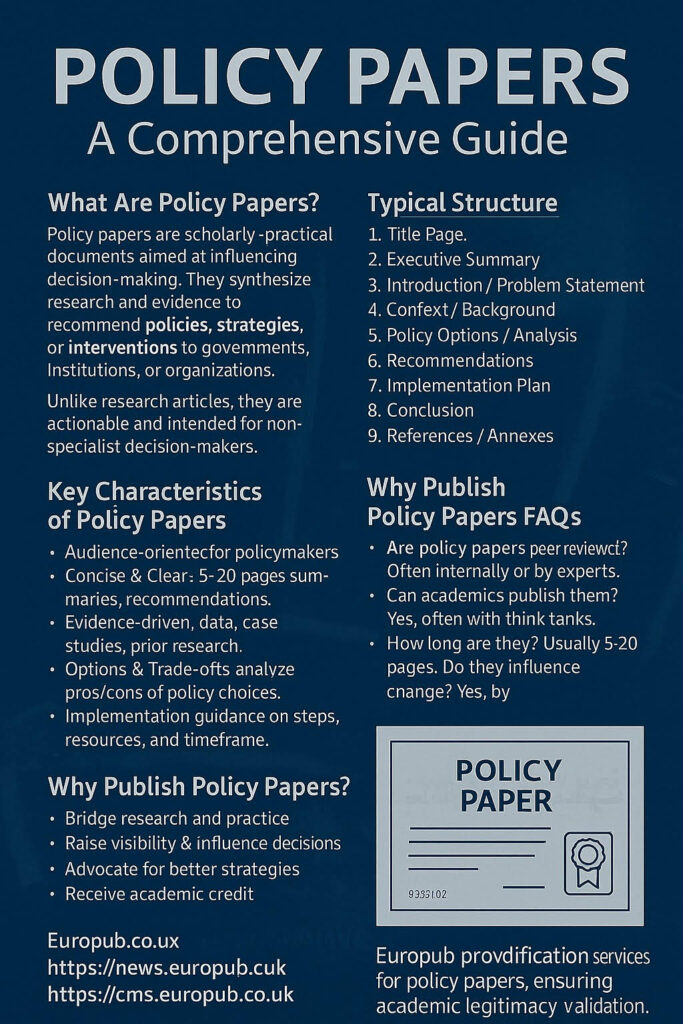
What Are Policy Papers?
Policy papers are scholarly–practical documents intended to influence decision-making. They synthesize research, evidence, and expert analysis to recommend policies, strategies, or interventions to governments, institutions, or organizations.
Unlike regular academic papers that prioritize theory or novelty, policy papers are actionable, evidence-based, and aimed at non-specialist decision-makers.
Key Characteristics of Policy Papers
- Audience-oriented: Written for policymakers, stakeholders, or institutional leaders, not necessarily academics.
- Concise & Clear: Often between 5–20 pages (or their equivalents), with executive summaries, clear recommendations, and minimal jargon.
- Evidence-driven: Data, case studies, statistics, models, and prior research back the claims.
- Options & Trade-offs: Presents alternative policy options, each with pros/cons, risks, and implementation challenges.
- Implementation guidance: Defines who acts, when, resource needs, and timeline.
Typical Structure
- Title Page – Title, author(s), affiliation, date.
- Executive Summary – Short (1 page) overview of problem + recommendations.
- Introduction / Problem Statement – Define the issue, scope, urgency.
- Context / Background – Review evidence, trends, stakeholder landscape.
- Policy Options / Analysis – Present and compare alternative approaches.
- Recommendations – Argue for a preferred policy and justify.
- Implementation Plan – Steps, roles, resources, risk mitigation.
- Conclusion – Summarize, emphasize urgency and impact.
- References / Annexes – Data tables, supplementary details, methodology.
Why Publish Policy Papers?
- Bridge research and practice: Translate academic insight into real-world impact.
- Raise visibility: Policy papers in high-profile institutions or think tanks can reach broader audiences.
- Influence decisions: Help governments and organizations adopt better policies.
- Academic credit: Some institutions recognize them in evaluations or promotions.
Examples from Reputable Publishers / Institutions
- OECD Policy Briefs / Policy Papers & Briefs — OECD publishes policy-oriented briefs summarizing research and recommendations for global or national policy.
- OECD Economic Policy Papers series — analyses on macro-economic and structural issues.
- Nature Policy / Nature Comment & Policy pieces — Nature’s “Policy” category includes commentaries and policy-oriented articles.
These examples show how leading institutions and journals frame policy-relevant discussions.
Frequently Asked Questions (FAQs) — Expanded
Q1. Are policy papers peer-reviewed?
- Often they undergo internal expert review rather than full academic peer review. The rigor depends on the publishing institution.
Q2. Can academics publish policy papers?
- Yes — many researchers collaborate with think tanks or policy institutes to produce them.
Q3. Are policy papers citable?
- Absolutely. High-quality policy papers are cited by scholars, reporters, and policymakers.
Q4. How long should a policy paper be?
- Usually 5 to 20 pages or equivalent — depending on depth and audience.
Q5. Should policy papers include original research data?
- They may include new analysis or data synthesis, but the focus is on recommendations, not novelty.
Q6. Can policy papers influence change?
- Yes. When well-argued and credible, they can guide legislation, institutional reforms, or funding priorities.
Q7. What makes a policy paper strong?
- Clear problem statement, evidence-backed options, feasible recommendations, stakeholder awareness, implementation plan.
Q8. Are policy papers less respected than research articles?
- Not necessarily. In policy fields, they are highly valued for practical influence.
Q9. Can policy papers be co-authored across sectors?
- Yes. Often researchers, policy analysts, and practitioners team up.
Q10. How to choose where to publish policy papers?
- Think tanks, policy institutes (e.g. OECD), government agencies, specialized policy journals or reports.
Europub & Certification
Europub supports policy papers by providing official certification, visibility, and academic legitimacy:
- Certification of Policy Publication — with QR code and Eurocode for validation
- Indexing & Archiving — inclusion in Europub’s network
- Expert Guidance — editorial and methodological consultation
 Use these correct links (please include them in your policy paper pages and covers):
Use these correct links (please include them in your policy paper pages and covers):
